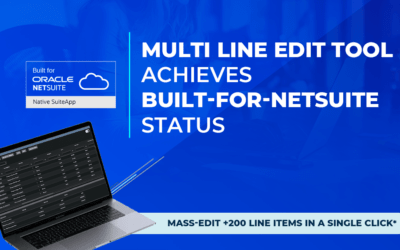Any new software implementation presents challenges, but enterprise resource planning (ERP) can be especially difficult to initiate and get over the finish line. In fact, McKinsey & Co., estimates that about 75% of these projects fail to stay on schedule or within budget. That’s why consulting and technology firms that specialize in ERP are in high demand. It’s also why companies should kick off the initiative by assembling a perfect implementation team to set the stage for success right from the start.
“Organizations choose to implement an ERP system for many reasons, including to increase productivity, create a better experience for customers and reduce costs,” NetSuite points out. “But because an ERP system affects so many aspects of the business, the implementation of the software can be a large and lengthy project. It’s common for an implementation to take a few months, and it often takes large businesses even longer to go live.”
Mistakes in planning or implementation, such as poorly defined goals or requirements, can cause further delays. “To prevent an ERP implementation from dragging on or even failing, it’s critical to build a good ERP implementation team,” NetSuite adds. “Any large project requires a skilled, committed team, and an ERP implementation is no exception.”
Teamwork Makes the Dream Work
Along with enlisting a reliable, experienced implementation partner, you should also involve team members from across your organization and at all levels of seniority. You’ll want to make sure the right executives, project managers, departmental experts, end users (namely those that will be affected by the implementation) and IT department professionals are part of the effort.
“These people provide much-needed sponsorship, insights into user patterns and business processes and practical support,” NetSuite points out. As a group, these individuals will be responsible for “following implementation best practices and ensuring the project is a success so the new ERP system operates as expected.”
Here are five more steps you can take to ensure that you put together and leverage the perfect ERP implementation team:
1. Get the right people onboard early
“The implementation team should have members from across your organization, making sure to include all involved departments or individuals using the software,” SelectHub “It’s very important to include end users.” Some of the roles to fill include:
- Project manager
- The executive sponsor
- Implementation partner
- End-users
- Functional team members from your organization’s IT, finance and manufacturing departments
- Data Scientist, if necessary
- Project stakeholders
2. Choose people for competency and ability versus job title or status
“It’s tempting to choose people who are already existing team members on their hierarchical role in the company but this is a mistake,” Manufacturing Business Technology “Managerial level employees aren’t necessarily more knowledgeable, and the project could take them away from their usual tasks.” Instead, look for experienced, savvy employees from across the company or hire externally someone who has prior ERP implementation experience.
3. Communicate and manage change effectively
It’s important to communicate a clear vision, plan and timeframe across your organization. “Remember that those not involved in the management of the ERP are the ones who will be using it on a daily basis, so try and involve them in the implementation as much as possible,” Manufacturing Business Technology says. “Find out their pain points and help them understand how the system will help solve them. Make sure you manage change effectively when rolling out the software, and give proper training to all employees.”
4. Be open to change and adaptation as you go through the process
The best ERP implementations include change management plans that help keep the project moving forward even when challenges emerge. “Your change management plan should account for tasks such as data migration, system testing, cost forecasting, end-user training and measuring ROI when the project is finished,” SelectHub suggests. “It should also set guidelines for communication, how to handle system downtimes or any other foreseeable issue that comes as a result of managing a transition at your organization.”
5. Give them enough time to succeed
ERP projects can span anywhere from a few months to years and require a considerable amount of commitment from employees who also must deliver on their day-to-day tasks. Knowing this, Catena Solutions says, “ERP projects must develop a comprehensive human resources capacity plan if they’re to be successful.”
Success with ERP Success Partners
Ready to learn more about how ERP Success Partners systems can help you implement NetSuite Cloud ERP efficiently, effectively and on time? Contact us today for a consultation.






